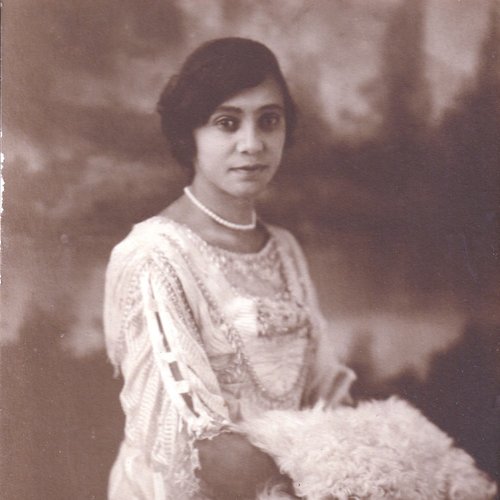Shelter Music Boston premieres mini-opera about Florence Price

In December 2009, Julie Leven read in the New York Times about violinist Kelly Hall-Tomkins, who was giving concerts in Manhattan homeless shelters.
A professional violinist herself who performs with the Boston Pops and Handel and Haydn Society, Leven immediately had the idea for a similar program in Boston. In 2010, she developed Shelter Music Boston, a wide-reaching organization that presents more than 80 professional-caliber classical concerts in homeless shelters around the region.
Shelter Music Boston’s performances proved a revelation for Leven as listeners in the shelters seemed to respond with a heightened enthusiasm she had not encountered.
The experience was particularly moving Monday night at South Boston’s Pine Street Women’s Inn, where Shelter Music Boston offered the world premiere of Francine Trester’s chamber opera, Florence Comes Home. Though lasting just twenty minutes, the work touched on themes that are all too familiar for many of Shelter Music’s audience members.
Heard in a concert version, Florence Comes Home tells the story of Florence Price, an African-American composer who is currently being rediscovered through new performances and recordings.
Price (1887-1953) composed music in a wide variety of genres, including two string quartets, two violin concertos, and four symphonies, in addition to songs. She is remembered primarily as the first African-American women to have a symphony performed by a major orchestra (Frederick Stock led the premiere of her Symphony No. 1 in E minor with the Chicago Symphony Orchestra in June 1933).
Yet her struggles as an African-American woman and single mother who battled poverty, racism, and even homelessness while managing to live an artistic life are the focus of Trester’s conception.
Cast in a single act, Florence Comes Home is an uplifting and warm-hearted introduction to Price’s life and career. The libretto, written by Trester herself, is based on the actual discovery of documents related to Price’s work by Darrell and Vicki Gatwood in an abandoned house in St. Anne, Illinois, the couple was renovating in 2009.
While renovating the run-down abode, Darrell and Vicki discover manuscripts, letters, and other documents stuffed beneath the floorboards. They learn that the house once belonged to Price, and they become interested in all facets of her life. As they uncover the details about her training at the New England Conservatory—where she was listed as Mexican to avoid the era’s racial prejudice—and her escape from the threat of lynching in Little Rock, Arkansas, Price’s ghost appears to supply the emotional context for her successes and failures. In the end, all hope that Price’s music, as an artifact of a difficult but creative life, will be heard widely.
Trester sets Price’s story through tender and lyrical music. But there are a few surprises in the score. Long lines played by a string quartet occasionally splinter into dissonances. Price’s own lines are also cast in an almost bluesy style, likely an ode to the composer’s unique musical voice. And when the ghost of Price tells of her parents, Trester’s rich harmonies express poignant nostalgia.
The singers of Shelter Music Boston performed their respective parts with assurance and sensitivity.
As Price, soprano Brianna J. Robinson captured the composer’s heartbreaking backstory with the warmth of a lieder singer. Vicki, portrayed by mezzo-soprano Carrie Cheron, was inquisitive and thoughtful in her search for Price’s past. Cheron’s gleaming lines complemented RaShaun Campbell’s rich baritone, which was well suited to the avuncular Darrell.
The string quartet, comprised of violinists Adrian Anantawan and Julie Leven, violist Ashleigh Gordon, and cellist Javier Caballero, supported the singers with grace and zest in this short but affecting love letter to Price’s memory.
They brought similar interpretive depth to Price’s own Four Folksongs in Counterpoint for string quartet, which filled out the rest of the hour-long program.
In this charming work, Price treats familiar folk tunes in a variety of styles and harmonic twists. “Clementine” unfolds through sudden key changes. “Drink to Me Only with Thine Eyes” takes on the richness of a Dvořák Largo. “Shortnin’ Bread” courses like a fiddler’s reel, and the somber lines of “Swing Low, Sweet Chariot” grow in intensity before releasing the tension in a firm, Beethovenian coda.
Through it all, the Shelter Music Quartet played with vitality while taking care to highlight each lyrical moment. Anantawan and Leven traded honeyed melodies in “Drink to Me Only,” and Caballero’s silvery cello melody at the opening of “Swing Low, Sweet Chariot” offered brief yet lasting solace.
The program runs through September 20 at various homeless shelters in Boston. Shelter Music Boston will offer a public performance of the program 6:30 p.m. October 17 at the Dane Estate at Pine Manor College. sheltermusicboston.org
Posted in Performances